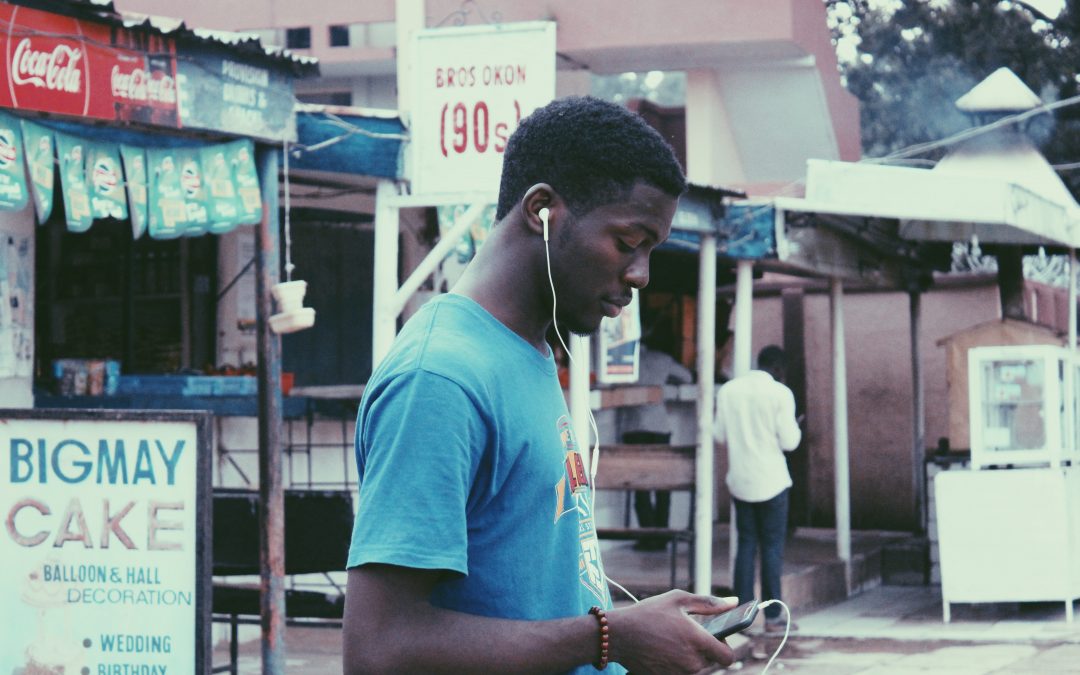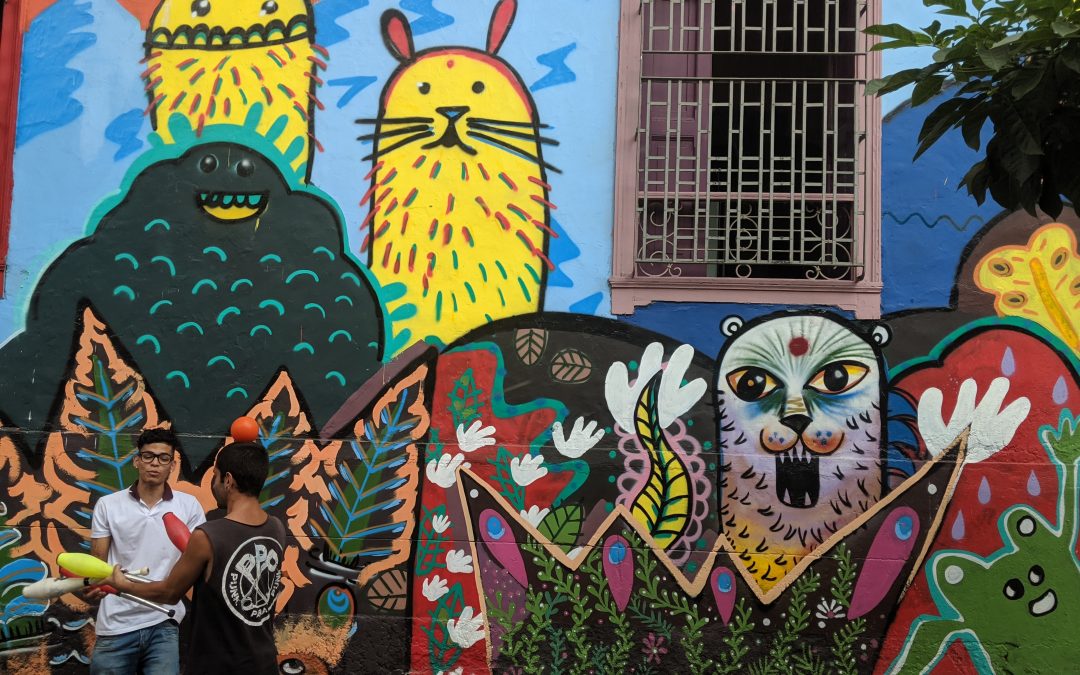
Randomised experiments and global development
Dr Gindo Tampubolon, Lecturer in Poverty, Global Development Institute
On 14 October 2019 the Royal Swedish Academy of Sciences awarded the Nobel Prize in Economics to Abhijit Banerjee, Esther Duflo and Michael Kremer “for their experimental approach to alleviating global poverty”. The trio include Duflo, the youngest laureate and only the second woman after the late Elinor Ostrom to have been awarded the prize. Jakob Svensson, an economist committee member, told journalists in Stockholm that randomised experiment method to development research which the laureates have been refining in economics is highly influential in efforts to tackle poverty around the world across many areas including income generation, education achievement, political participation and health behaviour. read more…

Digital financial inclusion in ten African countries: foregone digital dividends?
Dr Gindo Tampubolon, Lecturer in Poverty, Global Development Institute
The story of mobile money in Africa, such as Mpesa, is one of the success stories to have arisen from the continent in recent years. A World Bank report in 2016, featured mobile money services, together with innovations from other places, to illustrate how digital technologies are yielding digital dividends in development. Specifically, the report highlighted the prevalence of smartphones. With their spread, digital technologies are having a huge impact by enhancing inclusion, increasing efficiency and enabling innovation. read more…

GDI Lecture: Urban warfare: housing under the empire of finance with Raquel Rolnik
Listen or watch Raquel Rolnik, professor of Urban Planning at the University of São Paulo discuss her new book ‘Urban warfare: housing under the empire of finance’
In cities across the world the story is the same – housing is in crisis and increasingly available only to the wealthy. Models of home ownership that originated in the US and UK are now exported across the globe. Cities are being reshaped at a unprecedented rate, with gentrification and displacement a normal feature of 21st century urbanisation. All this was organised by those who stood to benefit most: construction companies and banks, supported by compliant governments. But how did we get to this place? And what can we do about it?
read more…

In conversation: Raquel Rolnik discusses the financialisation of housing
In this episode, Raquel Rolnik talked to Tom Gillespie and Isaac Rose about the financialisation of housing and her new book ‘Urban Warfare: housing under the empire of finance’.
Raquel Rolnik is a professor of Urban Planning at the University of São Paulo. She was National Secretary for Urban Programmes of the Brazilian Ministry of Cities (2003–2007). From 2008 to 2014, she held the mandate of UN Special Rapporteur on adequate housing. Tom Gillespie is Lecturer in International Development at the Global Development Institute. Isaac Rose is a a campaign coordinator at Greater Manchester Housing Action.

New monthly newsletter tracking the latest developments of China’s Belt and Road Initiative
Nick Jepson is a Hallsworth Fellow in Chinese political economy within the Global Development Institute at The University of Manchester. Later this year his book, In China’s Wake: How the Commodities Boom Transformed development strategies in the Global South, will be published by Columbia University Press.
In addition to his book, Nick writes a monthly digital newsletter which explores current affairs relating to China’s Belt and Road Initiative. read more…

In conversation: Rhys Jenkins discusses China’s economic involvement in the Global South
In this episode, Nick Jepson talks to Rhys Jenkins about China’s growing economic involvement in Africa and Latin America and his book ‘How China is Reshaping the Global Economy: Development Impacts in Africa and Latin America’
Rhys Jenkins is Professor of Development Economics at The University of East Anglia.
Nick Jepson is a Hallsworth Research Fellow in Chinese Political Economy at the Global Development Institute.

GDI Lecture: How China is reshaping the global economy with Rhys Jenkins
Listen or watch Professor Rhys Jenkins, University of East Anglia, discuss his book “How China Is Reshaping the Global Economy”
China’s growing economic involvement in Africa and Latin America have been a source of controversy and debate. Although there are parallels between China’s involvement in the two regions, particularly in terms of the drivers of Chinese involvement, there are also significant differences in terms of scale and impacts that the lecture will explore.
read more…

GDI Lecture: Gender and work: capturing the gains in Global Value Chains with Stephanie Barrientos
Listen or watch Professor Stephanie Barrientos, Global Development Institute, discuss her new book Gender and work: capturing the gains in Global Value Chains.
Building on years of detailed empirical research across different industries and in several countries, Barrientos examines how global values chains are reshaping the gender profile of work across many middle- and low-income countries. Gendered patterns of work in these global value chains can both relegate women workers to poorly paid and unrecognised labour or lead to economic empowerment and enhanced worker rights. read more…

Urban transformation and the ‘Medellín Miracle’
Keisha Maloney, MSc Global Urban Development and Planning
Once notorious for violence, cartels and drug trafficking, the city of Medellín in Colombia is increasingly becoming known for its transformation not only to peace – but prosperity. Like cities all around the world, Medellín has seen a dramatic increase in its population in the last few decades, exacerbating urban inequality. During the 1970s Medellín was Colombia’s industrial hub, mainly producing textiles. When civil conflict broke out a few years later, rural to urban migration rapidly increased. The housing market was incapable of keeping up with the steady flow of migrants, causing housing prices to increase, and forcing rural, poor migrants to construct homes along the unstable, steep mountainsides that frame Medellín. When Pablo Escobar’s drug cartel gained influence across Colombia, Medellín and its informal settlements became the main theatre for Escobar’s violence. Promising young men riches and status, the hillside comunas became engulfed in extreme violence, poverty, and became inaccessible to police and government officials who feared they would lose their lives upon entering a comuna and crossing an “invisible border” that divided one gang from another. read more…

GDI Lecture Series Autumn 2019
We are delighted to announce the autumn line-up for our GDI Lecture series. The series brings leading development thinkers to Manchester to discuss their latest research and ideas. read more…

